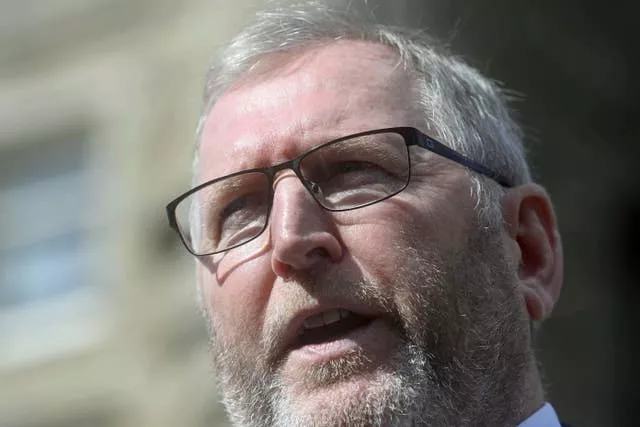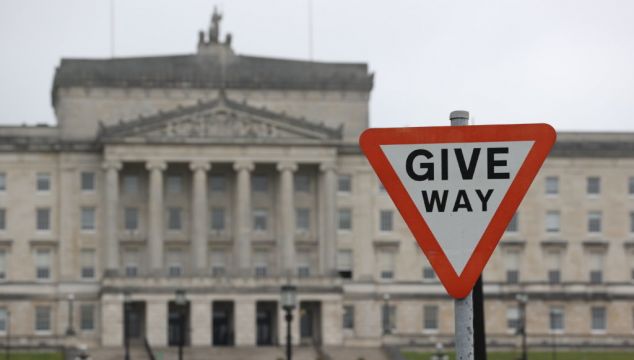Any return to direct rule in Northern Ireland would potentially involve an authority role for the Irish Government, the leader of the Alliance Party has said.
Naomi Long said she did not believe a majority of people in the North would accept control solely being exerted from Westminster if it proved impossible to resurrect devolution at Stormont.
Ulster Unionist leader Doug Beattie also predicted the possible joint authority scenario if powersharing in Northern Ireland was to crash on a long-term basis – he said that would be bad for unionism.
The politicians were asked about the issue as they spoke to reporters following a meeting with the head of the North's Civil Service Jayne Brady at Stormont Castle in Belfast on Thursday.

“I’m not sure direct rule is the next stage after the collapse of devolution, because I’m not sure direct rule would be acceptable to a majority of people in Northern Ireland,” said Ms Long.
“I’m not sure it fits in with the Anglo-Irish Agreement, with the Good Friday Agreement and everything that has happened subsequently.
“So, I think we will be talking about a form of direct rule that would involve Irish participation and not just directly from Westminster.”
She added: “Given the chaos in Westminster we would be going from the frying pan into the fire. It’s not as though we suddenly have this stable government (in London).
“We’ve often been allowed to behave like naughty children here, squabbling and fighting amongst ourselves because we’ve had the parents in Westminster and in Dublin able to kind of guide things through.
“But it’s actually Westminster that’s now losing its mind. So, we haven’t got the luxury of being able to look to across the water for help on stability and support – they are in chaos.”

Asked about the potential for a joint authority arrangement in the future, Mr Beattie said: “I’m really concerned.
“If we look at the New Decade, New Approach document that got this government, the executive up and running again, that was a document which was penned by London and Dublin. So, they had equal say in getting this government up again.
“If we’re going to do this again, if people think there’s a utopia out there, that it’s just going to be a direct route from London, then they’re mistaken, they’re politically illiterate.
“The reality is that if we do not get a government here, if we don’t get up and running here, we are going to have influence coming from all different directions and that’s not going to be good for unionism.
“And the one thing that you find with people is this – if they look for government and there isn’t one there, they will look to the nearest government to give them support, and that might well be looking towards Dublin, and that would be bad for unionism.
“And I’ve said this before, the one thing that really helps unionism, helps us maintain our place in the union and helps us build a Northern Ireland that we all want to live in, is by having stable government.”
DUP MLA Paul Givan said his party was committed to trying to make the powersharing arrangements at Stormont work.
He said direct rule in “any shape or form” would be bad to the North.
“I think if devolution ultimately isn’t here, we should all be concerned about what that means for Northern Ireland,” he said.
“Because we know that it’s through these institutions that people have a political voice, they can take their issues forward, they can be heard. And in the absence of that, I don’t think direct rule is good for the people of Northern Ireland in any shape or form.
“So, I think everybody should be concerned about the prospect of direct rule.”







